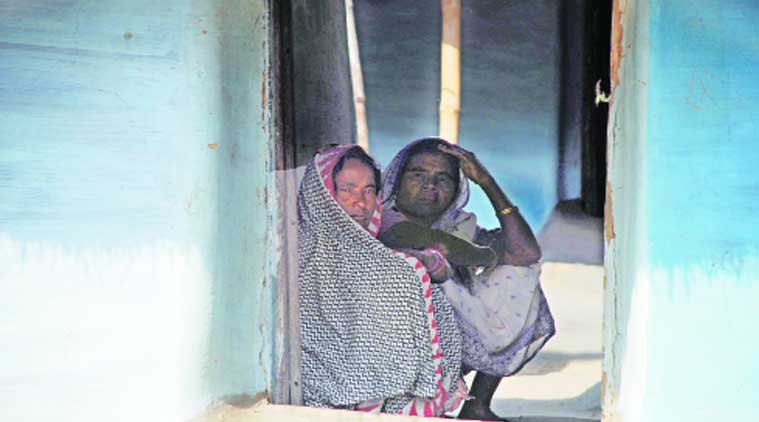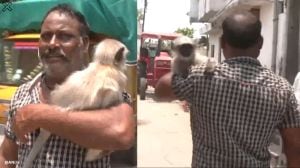- India
- International
Only survivor struggles to explain mystery suicide of five girls
Girls may have entered into pact after one was scolded for talking to boys
 The girls’ families saw nothing wrong in their friendship.
The girls’ families saw nothing wrong in their friendship.
And then there was one. On Monday, around 7.30 pm, she came running to the edge of the village, wailing, “Save Urvashi, please!” Then, the 14-year-old Indira fell, writhing in pain.
On the banks of a pond at the edge of Oro lay six ice-cream cups, emptied of Thymate —- a pesticide soluble in water. Further ahead were six half-eaten packets of the snack Kurkure. Then, about a kilometre away from the hamlet, in the Paschim Medinipur district of West Bengal on the Jharkhand border, were the bodies of five girls.
Four had their wrists tied to each other’s with dupattas —- the youngest, 13-year-old Rani, lay further away, the frenzy of those final seconds separating her from her friends. Indira survived.
[related-post]
At the Jhargram district hospital, Leena (17) and Nisha (20) “took a breath of oxygen” through the mask, according to the latter’s father Tanu Nayak, before succumbing, the rest were declared dead on arrival.
Now, only Indira can explain what looks like a suicide pact between the six girls, aged 13-20.

It may take her some time, though. “We made the mistake of showing her the bodies of her friends,” said her mother, Nila Nayak, outside the ward in Paschim Medinipur’s medical college where Indira is recovering. “She says such scary things. ‘My friends are calling me’, she says. ‘My mother won’t let me come’, she keeps mumbling,” Nila added.
The local media has gone to town with speculative stories about the six girls, but Indira’s mother said she “never saw anything wrong with their friendship”. The parents of the other girls agreed.
The only clue to what went wrong is provided by a local journalist known to the villagers who revealed that just days before the deaths, Indira’s grandparents had scolded her for “talking to strange boys” at a village fair.
According to Pradeep Maitoi, a villager, “The girls used to say —- maybe in jest —- that they would always be together. Together in life, together in death.”
But the parents of all the girls refused to confirm this nugget of information.
At Oro, the six “sahelis” were often talked of as a single entity. “If one was doing the dishes, the other five would be around her, gossiping. Shopkeepers often used to make fun of the fact that all six would land up if one had to buy something,” said Maitoi.
Lunches were shared in one of their houses; weekend siestas were at Sona’s (18).
The girls would even leave for morning and evening ablutions together. “They got delayed on Monday. The other four had left by their usual time of 5.30pm. Rani and Sona had to rush out, their evening snacks incomplete,” said Rani’s father Chitho Nayak.
Sona was his brother’s daughter; Indira his cousin’s. The fathers of Leena and Urvashi, too, are brothers. All the girls were neighbours in Oro, a hamlet of less than 150 households of which more than one-third comprise agricultural labourers of the Bhuiyan caste: dalits, who use the Nayak surname.
“They would sit by the pond for some time and chat,” said Nisha’s father Tanu Nayak. “Then they would go their separate ways to go to the toilet and later take bath at the pond together. We began worrying when they did not turn up even after 7pm that day.”
The two younger ones were still in school: the others had dropped out at various stages of high school. Of the two, Rani attended her eighth standard classes that day. Indira gave school a miss. Her parents say it was because she was expected to cook for her brother in their absence. “I did not see anything different about her,” Nila said.
However, the villagers agree that something did go wrong during a fair held in the village from February 17-20 to mark Shivrathri. “It is not something we can put a finger on —- the six of them were their usual selves throughout and even went to a nearby beauty parlour together,” said Maitoi.
Indira, who has changed her statement to the police often, has reportedly named four boys from Jharkhand. “She has said nothing of the sort,” said Inspector Arun Kumar Bagdi of the Jamboni police station.
The journalist from a Bengali daily, who has established a rapport with the villagers, say the four boys were from the village to which Sona was to be married into around Holi.
“Indira’s grandparents were angry that she was seen talking to strange boys at the fair. The family suspects the girl took the slight to heart,” he said.
* The names of all the girls have been changed since it is suspected they could be minors.
Apr 26: Latest News
- 01
- 02
- 03
- 04
- 05








































